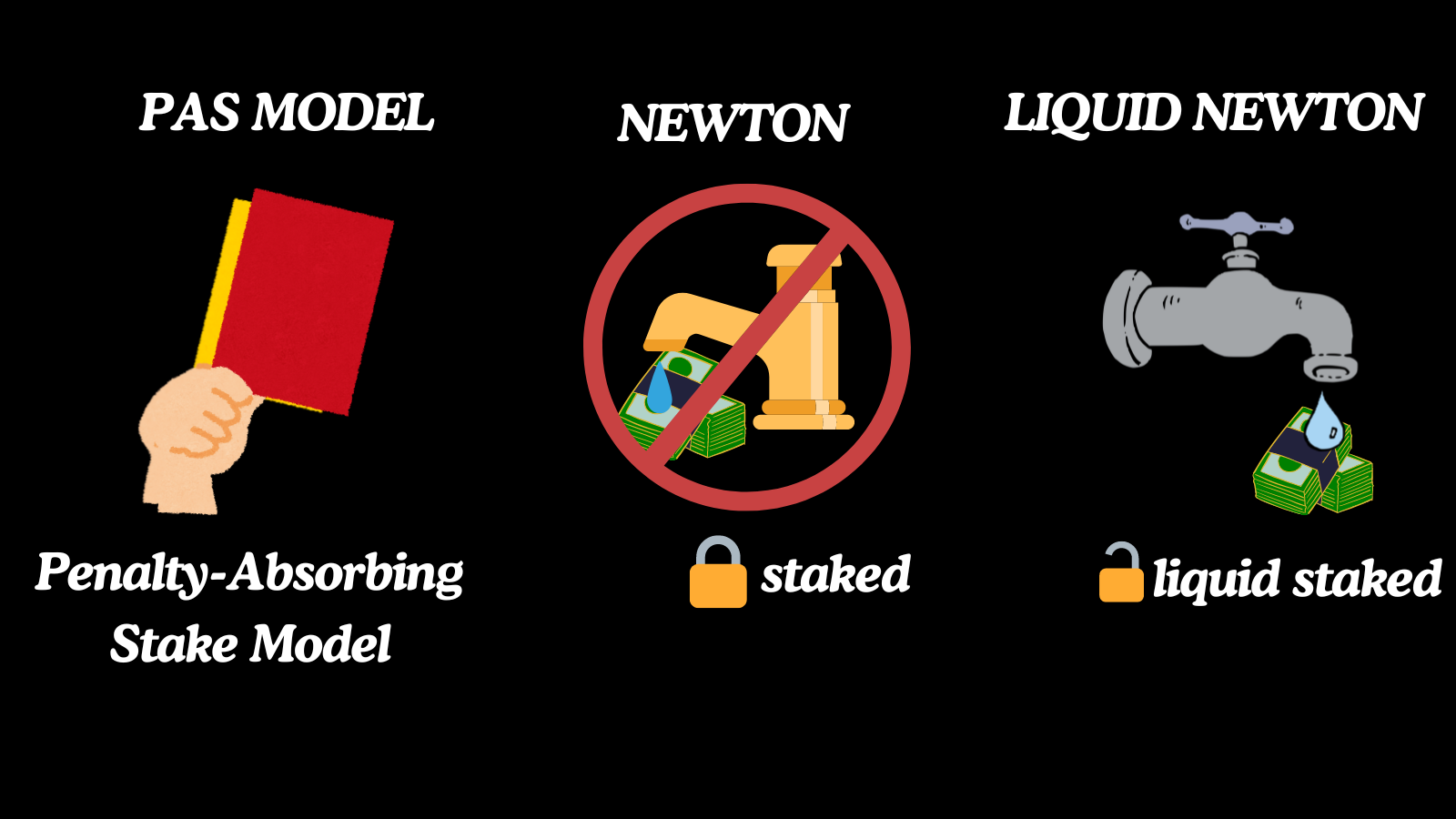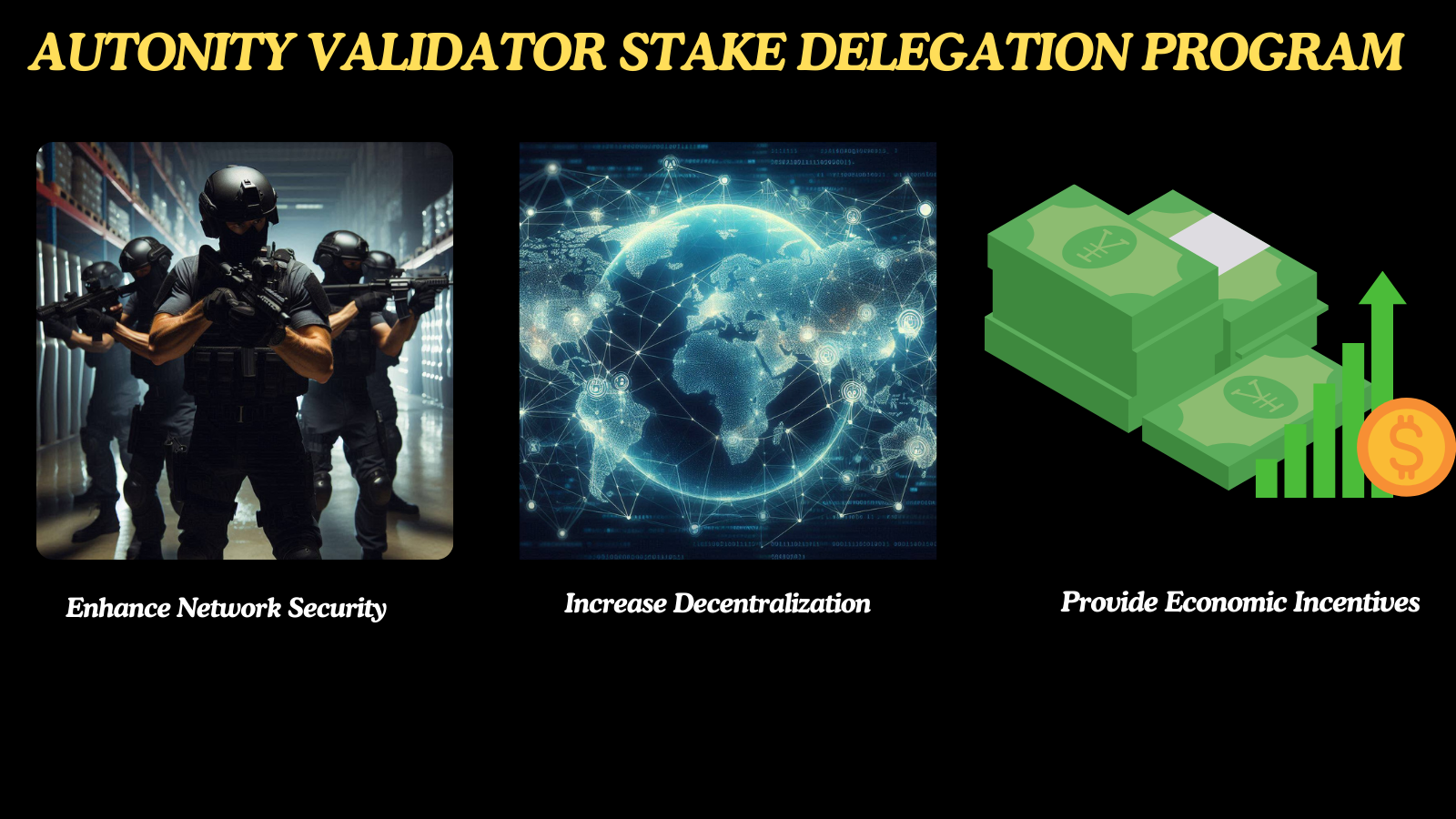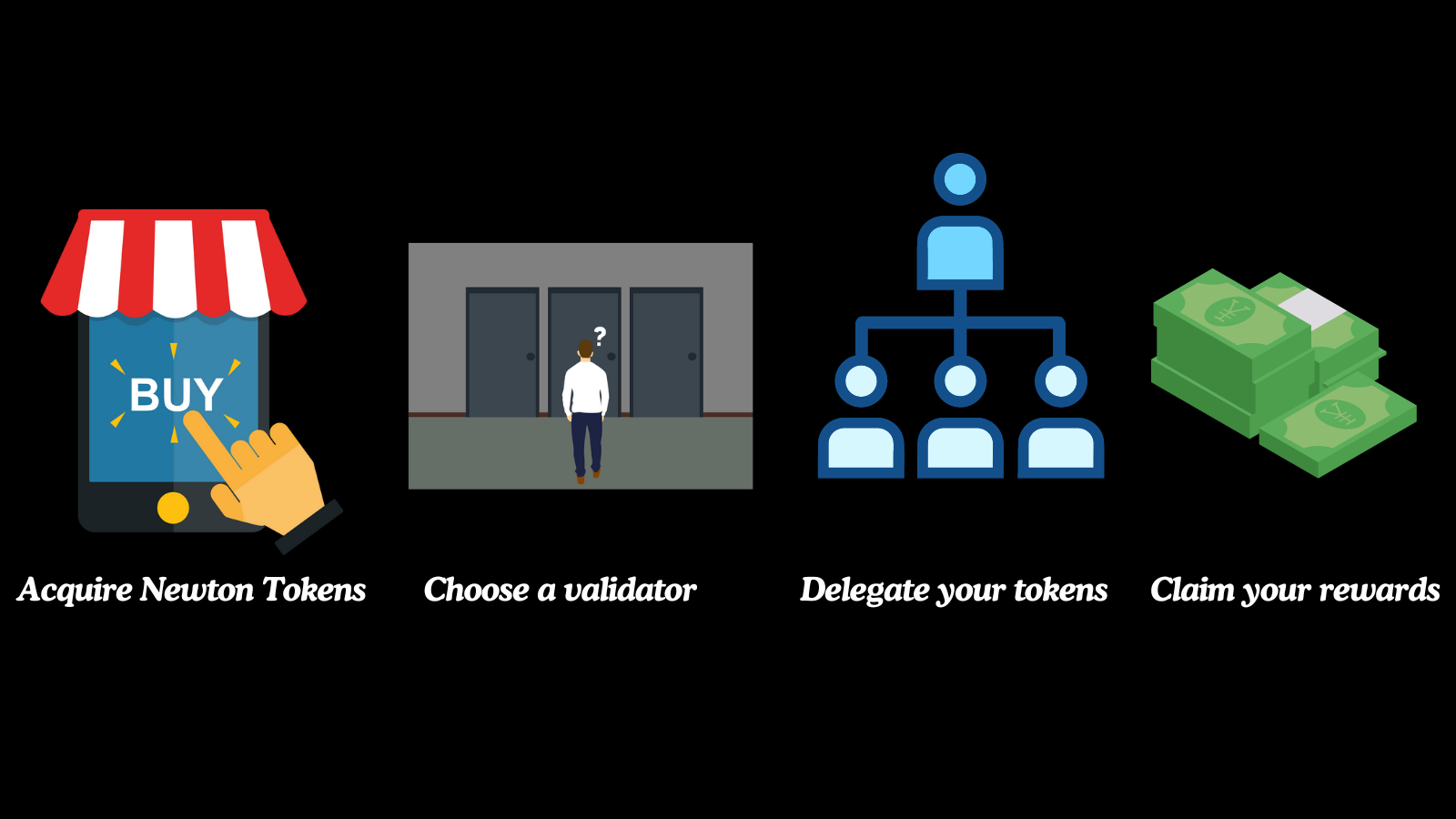The blockchain ecosystem continually evolves, bringing forward innovative mechanisms to enhance security, decentralization, and user engagement. Autonity, a blockchain platform, exemplifies this innovation through its unique staking model and Validator Stake Delegation Program (SDP). These elements are central to maintaining the network's integrity and providing economic incentives for participants. This article delves into the intricacies of staking on Autonity and the operational framework of the SDP.
Autonity, a next-generation blockchain protocol, implements an innovative staking model that combines Proof of Stake (PoS) consensus with liquid staking and a Penalty-Absorbing Stake (PAS) mechanism.
This unique approach offers network participants the opportunity to secure the network, earn rewards, and maintain liquidity - all while providing robust economic incentives for honest behaviour.
Understanding Staking on Autonity
Staking on Autonity involves bonding Newton (NTN), the network's native stake token, to validator nodes. This process is open to all network participants, allowing anyone to purchase NTN and delegate their stake to validators of their choice. By doing so, stakers play a crucial role in securing the network and, in return, earn a share of the staking rewards.
Autonity utilizes a sophisticated staking mechanism based on the Tendermint Proof of Stake (PoS) consensus protocol. This protocol is further augmented by Autonity’s Liquid Staking and Penalty-Absorbing Stake (PAS) model. At its core, PoS secures the network by aligning economic incentives: it rewards validators for honest behaviour and penalizes them for dishonesty.
Validators play a crucial role in blockchain networks ,they propose and validate new blocks, which helps maintain consensus, while also ensuring the security of the network.
Key features of Autonity's staking model include:

Newton Stake Token
In the Autonity network, the Newton stake token represents staked assets. Participants holding Newton tokens can bond (stake) them to validators, locking their tokens and earning rewards proportional to their stake. Liquid Newton, a derivative of bonded Newton, is minted for staked tokens and is transferrable, enhancing liquidity while still providing staking rewards.
This duality of bonded and Liquid Newton tokens offers flexibility and capital efficiency for network participants.
Liquid Staking
The liquid staking model in Autonity brings notable advantages:
-
Capital Efficiency: Participants can earn staking rewards while maintaining liquidity, allowing them to transfer or utilize their staked assets in other financial protocols.
-
Composability: Liquid Newton tokens can be integrated into other decentralized finance (DeFi) protocols, such as collateral for lending, thus enhancing the utility of staked assets.
Penalty-Absorbing Stake (PAS) Model
The PAS model prioritizes slashing (penalties) on a validator’s self-bonded stake before affecting delegated stakes. This hierarchy ensures that validators have substantial "skin in the game," thereby promoting operational integrity and trust among stakeholders. It also means that the risk profile for self-bonded stake is higher compared to delegated stake, justifying why Liquid Newton is only minted for delegated stake.
Autonity’s Validator Stake Delegation Program (SDP)
Autonity’s Validator Stake Delegation Program (SDP) is designed to democratize participation in network security and decentralization. It allows any network participant to delegate their Newton tokens to validators, thus contributing to the network’s consensus mechanism and earning staking rewards.

Purpose of SDP
The SDP aims to:
-
Enhance Network Security: By distributing staked tokens across multiple validators, the network becomes more resilient to attacks and collusion.
-
Increase Decentralization: Encouraging a wider range of participants to delegate their stake helps decentralize control, reducing the risk of centralization.
-
Provide Economic Incentives: Participants earn a share of transaction fees and block rewards, incentivizing them to engage in the network actively.
How SDP Works
-
Delegation: Network participants can delegate their Newton tokens to validators of their choice. This process involves bonding the tokens, which are then locked and contribute to the validator’s stake.
-
Minting Liquid Newton: For each delegation, Liquid Newton tokens are minted, representing the staked amount. These tokens are freely transferable and retain staking reward entitlements.
-
Staking Rewards: Delegators earn rewards proportional to their share of the validator’s stake. These rewards accumulate over time and can be claimed at regular intervals.
-
Slashing and Penalties: In case of a validator’s misbehaviour, the PAS model ensures that penalties are primarily absorbed by the validator’s self-bonded stake, protecting delegators to an extent.
How to Participate in SDP

-
Acquire Newton Tokens: Potential delegators need to obtain Newton tokens, which can be purchased or earned through various means.
-
Select a Validator: Participants should research and choose a validator to delegate their stake. Some factors to critically consider should include the validator’s historical performance, how commission they are charging, and amount of skin they have in the game(self bonded stake).
-
Delegate Tokens: Using the Autonity protocol’s staking interface, participants can bond their Newton tokens to the chosen validator, initiating the staking process.
-
Monitor and Claim Rewards: Delegators should regularly monitor their staked assets and claim accumulated rewards when it’s economically viable.
Conclusion
Autonity's staking model, with its combination of liquid staking, Penalty-Absorbing Stake, and open delegation system, offers a robust and flexible approach to network security and participant rewards. By allowing easy participation through stake delegation, Autonity aims to create a more inclusive and decentralized ecosystem, where a wide range of participants can contribute to network security and share in its success.